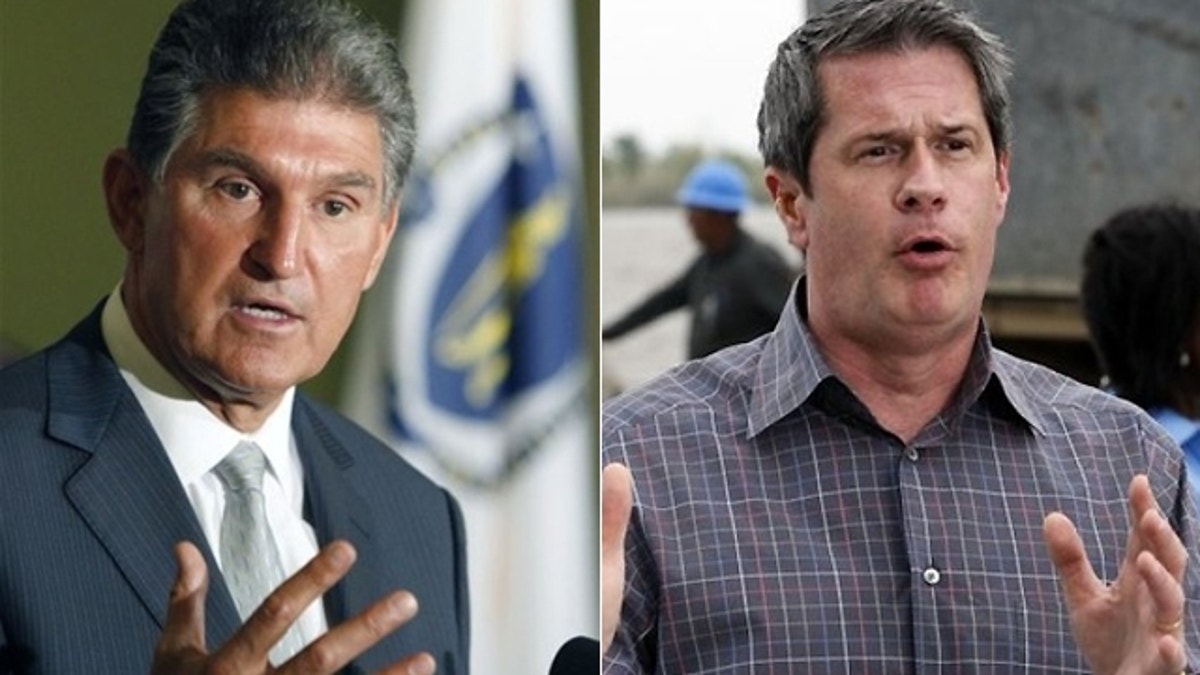
West Virginia Democratic Gov. Joe Manchin, left, easily won his party's nomination and will face GOP primary winner John Raese in the race for the U.S. Senate seat held by the late Robert C. Byrd, while Republican Sen. David Vitter, right, will face Democratic primary winner Rep. Charlie Melancon in a U.S. Senate race in Louisiana. (AP photo)
CHARLESTON, W.Va. — Popular West Virginia Democratic Gov. Joe Manchin easily won his party's nomination and will face Republican primary winner John Raese in the race for the U.S. Senate seat held by the late Robert C. Byrd.
Raese, a wealthy businessman, defeated a crowded field of GOP candidates. He now becomes key to the GOP's quest to dismantle the Democratic Senate majority. Democrats are clinging to the majority as high unemployment and the slow economic recovery take a toll on their political prospects this fall.
In Louisiana, meanwhile, Incumbent Sen. David Vitter has easily won the Republican nomination and will face Democratic primary winner Rep. Charlie Melancon in a U.S. Senate race in Louisiana.
Vitter and Melancon each defeated two lesser-known candidates in their party primaries Saturday. With little competition in the contests, both Vitter and Melancon have already engaged in a war of attack ads.
In West Virginia, the hastily called primary for the remaining two years of Byrd's term attracted a crowded field of 10 Republicans, three Democrats and a Mountain Party hopeful. Manchin has appointed a former top aide, Carte Goodwin, to hold the seat until after the November election.
Byrd, a 92-year-old Democrat elected to a record ninth term in 2006, died June 28. It took the state Legislature until mid-July to set up the primary, giving candidates just four days to register and about a month to campaign.
Hechler turns 96 next month and sees the race as a referendum on the efficient and highly destructive form of coal mining known as mountaintop removal.
Manchin's support from coal and utility industries — which have provided more than a quarter of the $1.2 million he has raised since declaring his candidacy last month — may help him overcome national GOP attempts to paint him as a liberal who will side with President Obama's administration.
Obama did not carry West Virginia in 2008, and his energy and environmental policies are deemed anti-coal in the nation's second-largest coal producing state.
On the Republican side, replacing Byrd has become part of the GOP quest to dismantle the Democratic Senate majority, which Democrats are clinging to as high unemployment and the slow economic recovery take a toll on their political prospects this fall. They desperately need to hold the Senate seat in West Virginia, a state that Republican nominee John McCain won handily in 2008 with 56 percent of the vote.
Wealthy businessman John Raese and recent U.S. House candidate Mac Warner are the best known of the GOP hopefuls. The 60-year-old Raese, who lost to Byrd in 2006, has been pumping money into a television and radio ad campaign to bolster his name recognition and to declare he won't be a rubber stamp for Obama's agenda.
Raese and Warner are competing with a pool of unknowns including a cement contractor, a certified public accountant, a substitute teacher's aide, a gas company supervisor, a lawyer and a few retirees.
In Louisiana, Vitter survived a 2007 prostitution scandal and has shrugged off fresh questions about his judgment in allowing an aide to remain on his staff for more than two years after a violent attack on a woman police identified as his ex-girlfriend. With little competition from his own party, he has focused on Melancon, and the two are engaged in a war of attack ads.
The campaign manager for Vitter's best-known primary opponent, retired state Supreme Court Justice Chet Traylor, says Republicans encouraged Traylor to get into the race because they feared another scandal was lurking. But Vitter appeared strong against him and little-known Republican Nick Accardo.
The Associated Press contributed to this report




